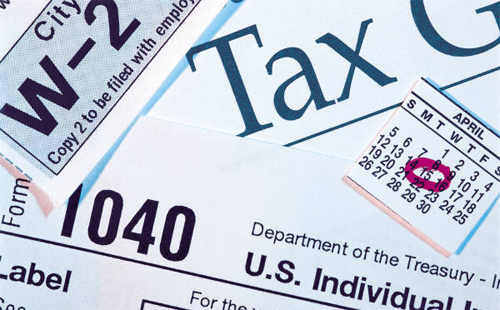Question: My daughter recently reached the age of emancipation and my child support payments were halted. I was given the tax deduction for my daughter as part of the divorce decree and my ex signed IRS Form 8332 each year, granting me that deduction. Now that my daughter is emancipated, …
CONTINUE READINGtaxes
Finances and Divorce: What Constitutes Income?

By JoAnne C. Holt, Divorce financial analyst “Income” for purposes of calculating child support and alimony is not always as evident as one would think. Let’s look at several scenarios: Employee who receives a W-2 Self-employed professional Partner with another unrelated business person in several ventures
CONTINUE READINGCan I motion to modify child support more than once a year?

Question: I would like to modify child support I receive from my ex wife but I was told that I couldn’t file more than one motion a year for child support. Is that true? Also, the court order states that I am to claim the children on income taxes, which …
CONTINUE READINGHow much should my wife pay toward the mortgage in my settlement agreement?
Question: My wife and I have decided to co-own our house (for the kids) after the divorce. We are having a difficult time figuring out how much she should pay on the mortgage since she has her apartment rent to deal with as well. Is there a general rule? Also, …
CONTINUE READINGDivorce and the division of retirement or tax sheltered accounts

Question: I have been divorced for over two years. I recently received notice from the IRS that I owed additional taxes on a 403b that I was court ordered to distribute to my ex wife. Since it was only in my name, I only received notice on the back tax …
CONTINUE READINGPractical Tax Advice While In Litigation

By Kristin K. Zurek Attorney, Cordell & Cordell, P.C. Around this time every year, clients start to ask me how to approach their tax filings while their divorce litigation is pending. As the parties are not yet divorced, does it benefit the client to filing separately or filing jointly? Read …
CONTINUE READINGCommon Questions on Divorce and Taxes

By Corrine Bylund When you are divorced, or in the process of divorce, your filing status and your deductions aren’t as sure as death and taxes. In this article, we’ll address the three most common questions facing divorced, or divorcing, couples when it comes to taxes: What is my filing …
CONTINUE READINGLifestyle Analysis – Alimony and Child Support

By JoAnne C. Holt Certified divorce financial analyst What is a “lifestyle analysis” and why would you need one? This analysis is normally helpful in preparing your financial affidavit as well as providing very important information to your attorney. Additionally, if one spouse has had a greater earning capacity and …
CONTINUE READINGIRS Changes Pertaining To Children Of Divorced Parents

Tax & Financial expert, Michael Isenhart of Isenhart Tax & Financial, joins family law attorney, Dan Cuneo, JD (Cordell & Cordell, PC) to discuss changes in this year’s tax laws pertaining to dependent children of divorced or separated parents or parents who live apart. Make reading this a part of …
CONTINUE READINGYear End Tax Planning For Divorcing Dads

by Michael Isenhart, EA Due to the changing political climate, it may pay to plan ahead before year end to maximize tax savings and avoid tax traps. The incoming regime defines high-income earners as those making over $250,000.00. They’ve made it clear that they will be raising their tax rates. …
CONTINUE READING